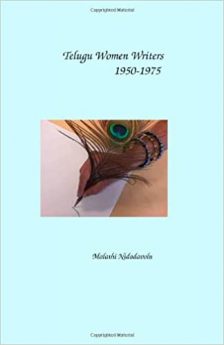Telugu Women writers-21
Telugu Women writers-21 -Nidadvolu Malathi The novel, Son of the Soil, published in 1972, supposedly depicts the collapse of zamindari families.[1] The rich landowners were losing their hold on the land, urban life was luring villagers to cities, and the old values were changing fast. Sambayya, who dedicated his entire life to his land, is […]
Continue Reading

